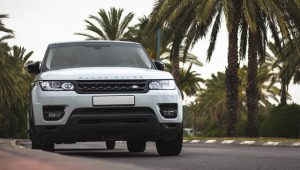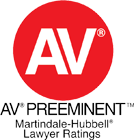 Anyone who’s ever been arrested at a DUI checkpoint in California hopes this practice is illegal. There are many myths surrounding police-enforced checkpoints. DUI checkpoints are, in fact, legal under both the United States and State of California constitutions.
Anyone who’s ever been arrested at a DUI checkpoint in California hopes this practice is illegal. There are many myths surrounding police-enforced checkpoints. DUI checkpoints are, in fact, legal under both the United States and State of California constitutions.
Here’s what you need to know about DUI checkpoints in California:
What Should You Expect at a DUI Checkpoint?
The police will have a roadblock that inhibits traffic from going beyond a certain point until officers have spoken with each individual driver. The lanes of the road are usually coned off, reducing the usable lanes down to one or two.
When you arrive at the stopping point, the officer will ask for your license and registration, just as though you were stopped for speeding. The officer will also engage you in conversation briefly. He or she will be looking for signs of intoxication such as:
- Fumbling for your identification
- Smell of alcohol
- Trouble answering his or her questions
- Slurred speech
- Evidence of intoxication in the car (beer cans or bottles or drug paraphernalia)
Bear in mind that, unlike other DUI situations, an officer doesn’t need probable cause to pull you over at a DUI checkpoint. If he or she suspects that you’re driving under the influence, you may be asked to submit to field sobriety tests (FSTs) or Preliminary Alcohol Screening (PAS) breath tests, both of which are legally permissible to request.
Can You be Arrested at a Checkpoint?
If your performance during the FSTs is questionable, the officer will then have probable cause to arrest you. Even if you’re arrested at a checkpoint, it doesn’t necessarily mean you’ll be convicted of a DUI.
DUI checkpoints are subject to rules and regulations. If law enforcement doesn’t adhere to the specifications of these guidelines, any arrests made at the checkpoint may be considered unlawful and subsequently be dismissed, even if the driver was, in fact, intoxicated.
What Guidelines Must Officers Follow at DUI Checkpoints?
While checkpoints in and of themselves are totally legal, certain checkpoints may be deemed illegal if policies and procedures are not followed. In the landmark case Ingersoll v. Palmer, the California Supreme Court determined that there are eight “functional guidelines” by which officers must abide in order for checkpoints to be considered constitutional.
Here’s a brief run-down of these rules and regulations:
- Decisions must be made at the supervisory level.
- Neutrality must be observed in determining which cars are to be stopped.
- Safety must be considered in terms of traffic patterns, street layout, and visibility for oncoming motorists.
- The location of the checkpoint must be “reasonable”, meaning it must be placed in an area where the average number of DUI-related arrests substantiates the need for a checkpoint.
- Time and duration should reflect “good judgement.”
- Indicia of the official nature of the roadblock must be made clearly visible.
- The length of detention should be kept to a minimal amount of time.
- DUI checkpoints should always receive advance publicity.
Can You Refuse a DUI Checkpoint or Turnaround to Avoid One?
California law requires all drivers to stop at sobriety checkpoints and submit to the requests of police officers. If you refuse to comply with their instructions, you may face charges outside of any potential DUI infractions.
There isn’t a law that states you may not intentionally avoid a checkpoint; however, given the notice officers are required to provide, they’ll likely be on high alert for traffic violations, vehicle defects (such as a broken tail light), or obvious signs of intoxication. If your change in direction presents a safety hazard or causes a traffic infraction, you’ll likely be pulled over.
If you’ve been pulled over at a DUI checkpoint in California and arrested, it is important to hire an attorney as soon as possible. The longer you wait, the more convoluted your case could become.
Call Los Angeles DUI lawyers Artz & Sturm Law Group today at 310-820-1315.


